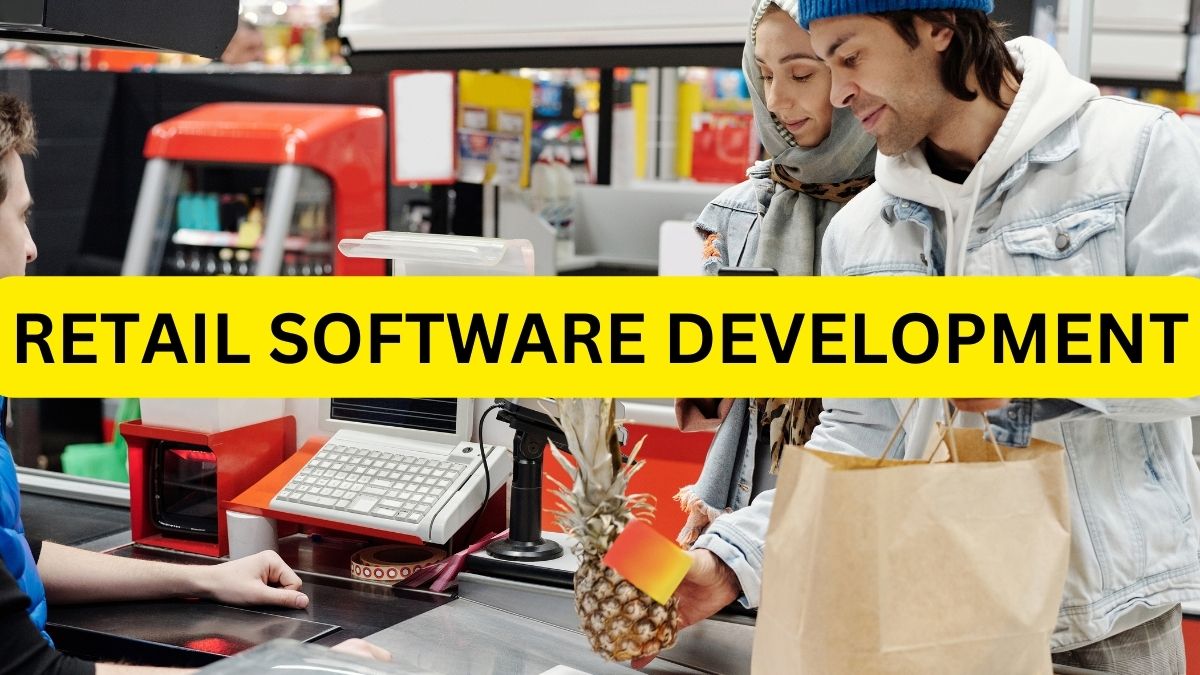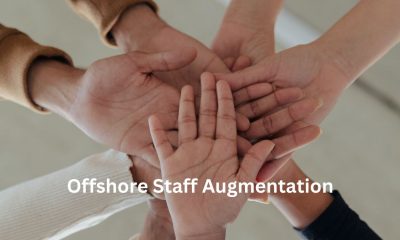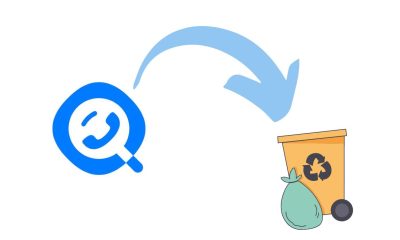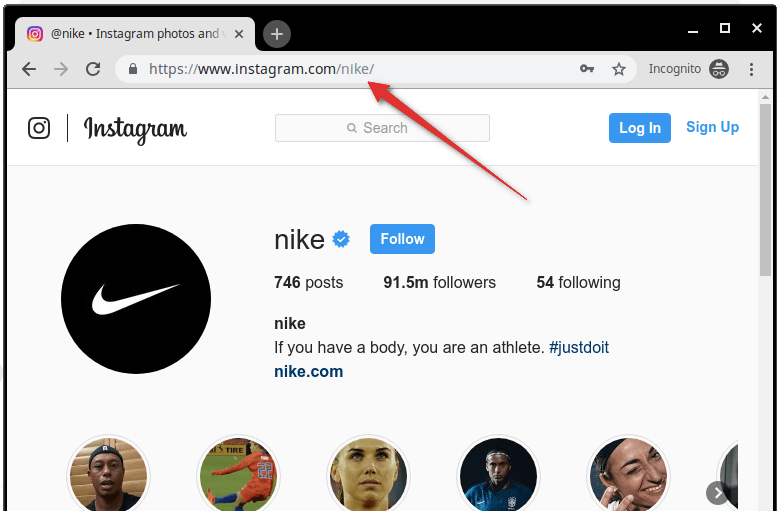Software Development
Things to consider before starting a Retail Software Development

There are three aspects to consider when developing the right retail software: the operational aspect (Is customer relationship management effective?), the collaboration aspect (Does communication between employees, customers, suppliers, and partners improve?), and the analytical aspect (Does data analysis become easier?).
What tasks will your business solve using retail software?
- Gathering sales data in a shared database, in a single view
- Segmenting the target audience and building customer portraits
- Providing immediate response to customer inquiries
- Generating personalized recommendations and offers for the buyers
- Making sales forecasts
All these functions of retail software, in most cases, are aimed at customers. For example, such retail software as CRM works within the company: integrated with financial tools, it accelerates preparing reports, automates staff work, and improves communication between departments through a common information field.
All retail software can be divided into two large groups: boxed products (ready-made solutions) and custom software. And it is clear that to choose a custom retail software, you must find a quality supplier of retail software development services and have clear goals. Just the choice depends on the objectives of your business and the requirements which software must meet. Below, we have prepared some tips about software development.
Customizable and flexible retail software: does it really matter?
It all depends on the needs of the company and employees. Indeed, the customization needs are not the same if the retail software is used by one department (e.g., sales representatives only) or several departments with different modes of operation, which may need to be adapted. In any case, simple, ergonomic, and intuitive software is preferred.
In addition, to ensure that your retail software is open to other tools, it is interesting to see if it has an application programming interface (API). The IT department should be able to measure API needs and interoperability or technical barriers with the chosen retail software solution. For example, APIs allow interoperability with ERP, other software, or a website.
Compare the features offered by custom retail software
It is important to select its features according to the needs and use of each. By grouping the different features by topic, it allows you to put a rating of importance for each criterion and make a complete comparison to see more clearly. The main groups of software features most often are:
- Database of contacts and companies: multi-criteria search, history of exchanges and changes, import/export of Excel tables, synchronization with another database, sorting, adding favorites, a tool for merging companies or duplicating contacts, etc.;
- Commercial pipe management: monitoring the evolution of opportunities, creating personalized quotes, etc.;
- Marketing campaigns: the creation of personalized campaigns, interface with mailing tools, automation of actions, etc.;
- Sales cycle automation: automatic email/phone reminders, document storage (sales proposals, letters, etc.), overdue action reminders, signature probabilities calculation, etc.;
- Data analysis: dashboards, data summaries with graphs, commercial reporting, custom queries, ROI analysis, etc.;
- Workforce planning and management: general scheduling and general agenda, managing employee absence and expense reports, requesting and confirming leave / RTT, managing roles and access rights, hierarchy, etc.;
- Additional options: interface with social networks, API call, links to Google Maps;
Custom retail software options that matter
Simple options or parameterization options are useful for increasing the productivity of your team. That’s why you need to learn about some features that can make a difference. If we talk about CRM, for example, social media interface, available on all types of support (mobile CRM, laptop, desktop, etc.), link to email software, synchronization with employee calendars (Office 365, Google Calendar…), related mobile apps, etc.
You’ll find that usage of custom CRM software is a detail that facilitates appropriation and long-term use. And let’s dive deeper into the retail software development topic on the example of these systems by Fideware.
CRM software: security, data storage, and backup
Depending on how the CRM software is obtained, it is important to question the security of the stored data. In the case of purchasing CRM software in SaaS mode, the publisher will take care of the location of all the data contained in the software. Therefore, it is preferable to check the level of technical skills and experience of the publisher, the location of data centers, the frequency of data backup, the technological partners of the CRM software publisher (vendors, training, support…). This step should not be overlooked. A data leak or loss can be an actual blow to the company.
If you’re still hesitant, test them out
It can be helpful to try the CRM software before you buy it and mobilize all its employees. Having different departments that will use the CRM software to do the test allows you to have feedback and comments and take comfort in your decision.
Why choose a custom solution from Fideware
- Easy-to-use retail software: With the advent of new technologies, your employees will have the perfect ease-of-use interface that you customize yourself to meet your needs.
- Comprehensive dashboards: you will be able to track, analyze and understand your customers’ journey.
- All your services will be connected: the CRM will be able to connect all your business processes to initiate the perfect collaboration of your services and increase efficiency.
- Smart tool: by creating lists that you will customize, you will be able to monitor your opportunities or consider new marketing campaigns by planning them.
Custom CRM systems are easily integrated with the IT infrastructure of the business, contain a package of options necessary for a particular business, and protect customer data. Many business owners appreciate the benefits of CRM.
Among the retail software development services on the market, how to select the one that will help increase the productivity and commercial efficiency of your company?
By following all of these tips to choose your custom retail software, know that the more the solution is considered, the more effective and flexible the implementation will be. Measuring your goals and determining your needs lets you know which features are necessary and which are not. However, some steps in the custom retail software selection process are not negligible: checking the vendor’s reliability and experience, testing before buying, etc.
-

 Cyber Risk Management3 days ago
Cyber Risk Management3 days agoHow Much Does a Hosting Server Cost Per User for an App?
-

 Outsourcing Development3 days ago
Outsourcing Development3 days agoAll you need to know about Offshore Staff Augmentation
-

 Grow Your Business3 days ago
Grow Your Business3 days agoThe Average Size of Home Office: A Perfect Workspace
-
Solution Review3 days ago
Top 10 Best Fake ID Websites [OnlyFake?]
-
Business Imprint3 days ago
How Gaming Technologies are Transforming the Entertainment Industry
-

 Gaming Technologies24 hours ago
Gaming Technologies24 hours agoHow to Set Up Text-to-Speech for Channel Points on Twitch









